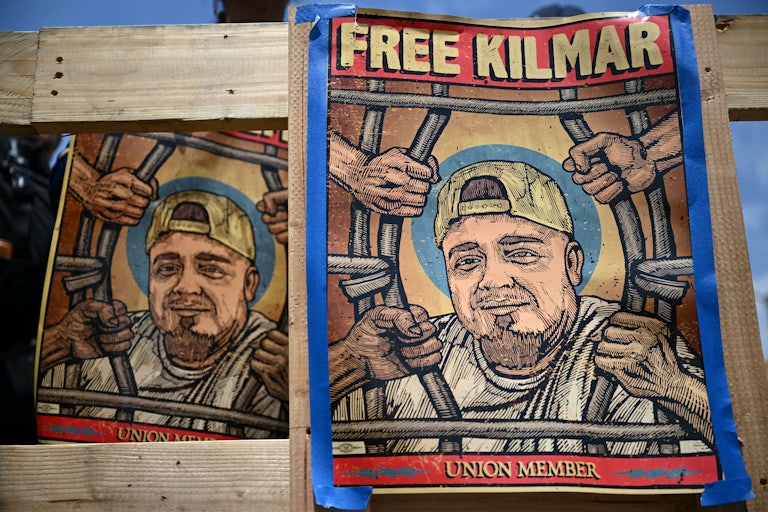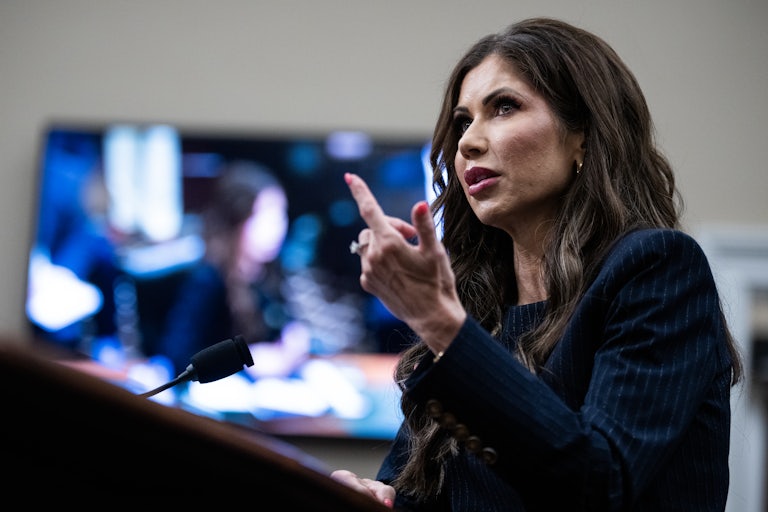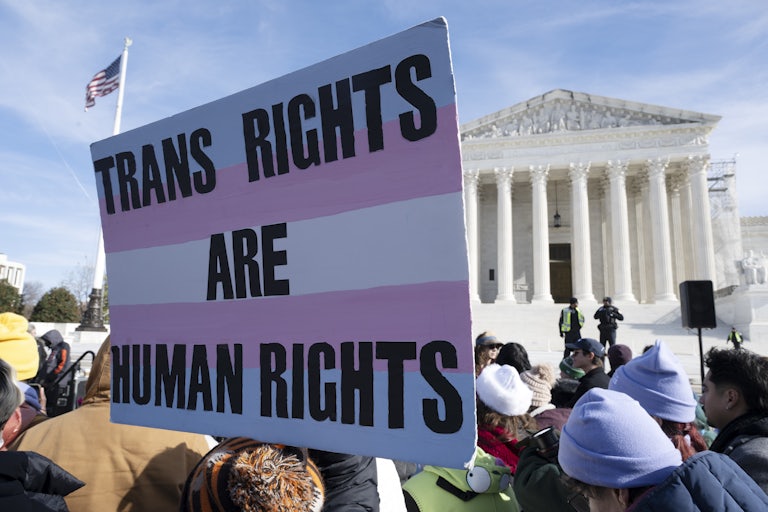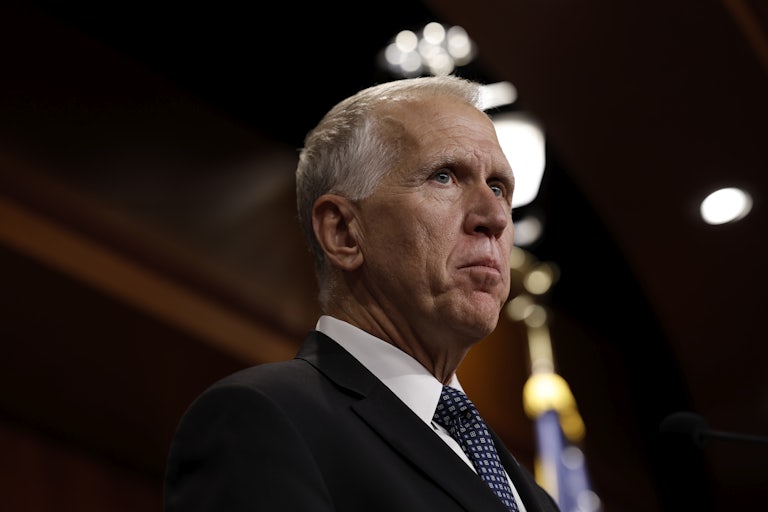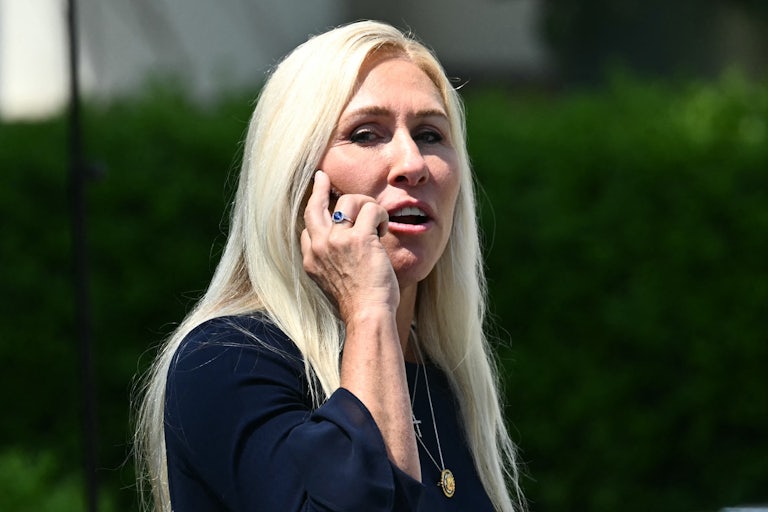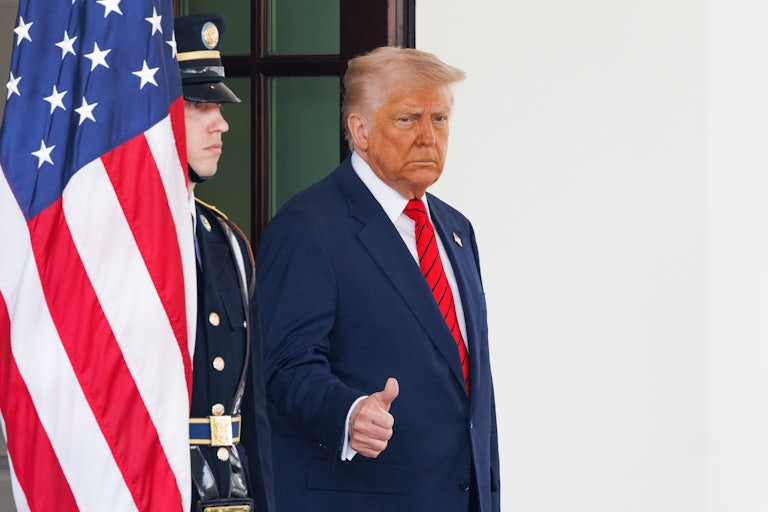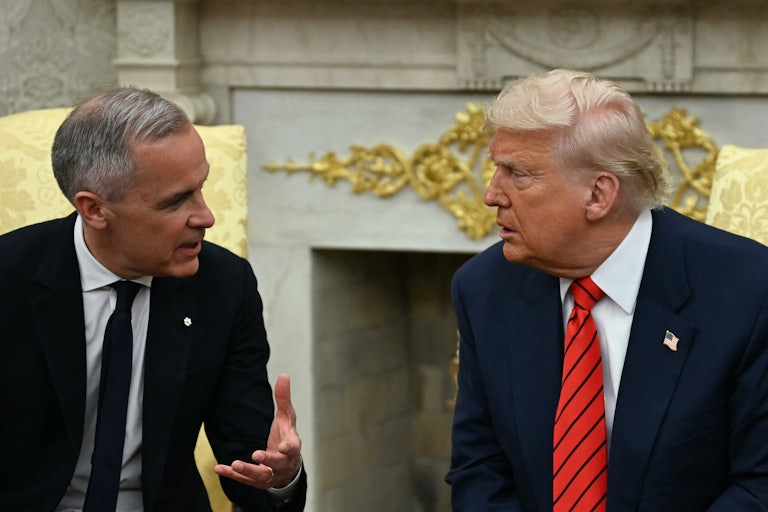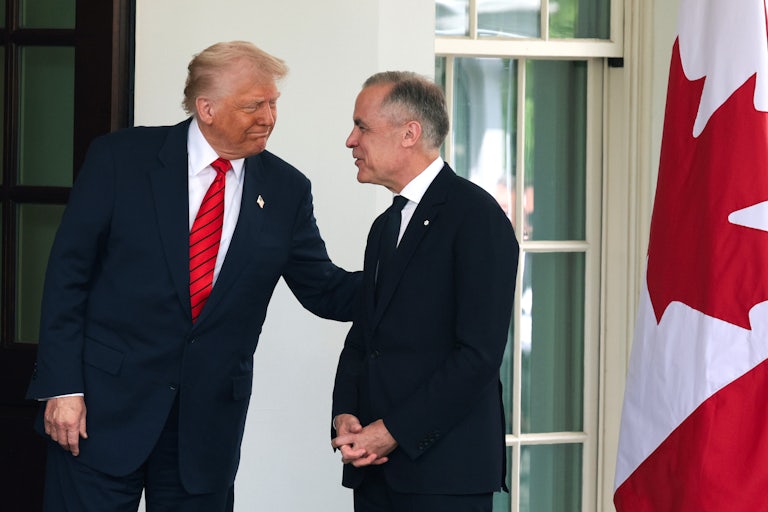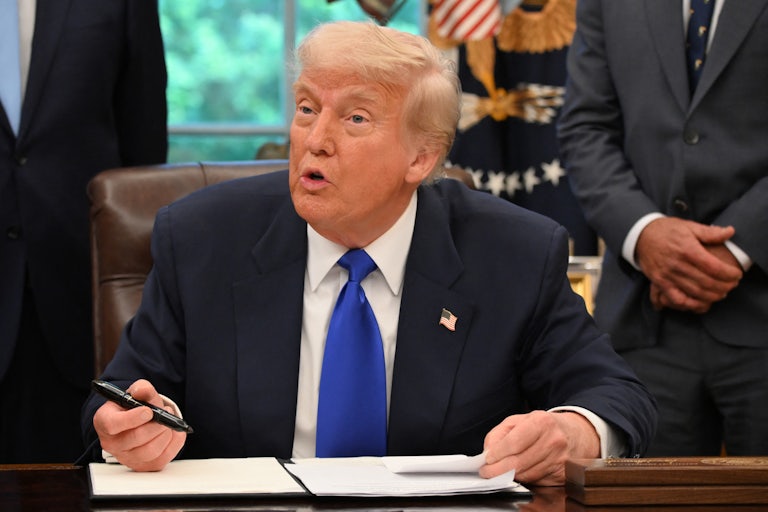Pam Bondi Hops on Board Trump’s Alcatraz Delusion Train
Donald Trump’s attorney general cracked a grim joke about reopening Alcatraz.
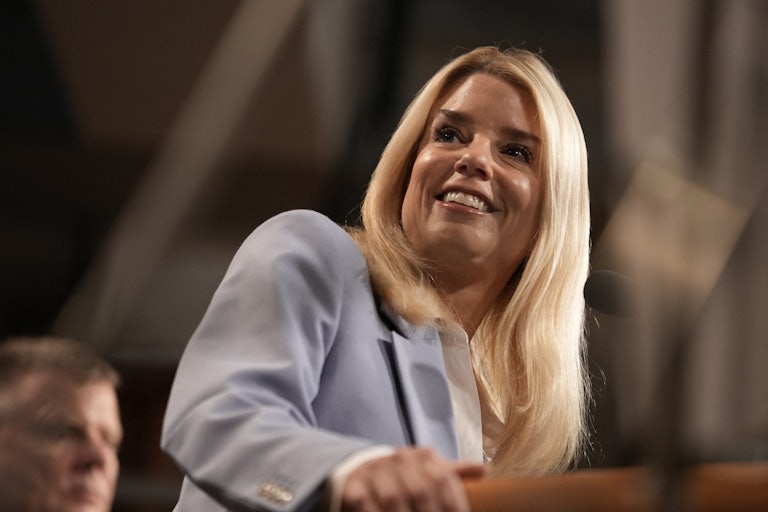
The president’s Make Alcatraz Great Again pitch just got more fuel from one of his subordinates.
Attorney General Pam Bondi suggested Tuesday that alleged international drug traffickers, “if convicted,” should stay in American prisons—“maybe Alcatraz,” she added with a smile.
Other Republicans have similarly scrambled to make Trump’s bizarre Sunday evening order to “rebuild, and reopen Alcatraz” sound like a bright idea. Senator Eric Schmitt vaunted the plan as “very smart,” and Senator Markwayne Mullin endorsed it on X, while Representative Mary E. Miller got to work itemizing the most important Alcatraz inductees: “The first person to be sent to Alcatraz should be Anthony Fauci,” she wrote, referring to the pandemic-era director of the Centers for Disease Control and Prevention.
In reality, there is practically zero possibility that the famed prison would reopen to house more prisoners. Alcatraz—which operated for just 29 years—was shut down in 1963, in part due to how expensive it was to operate. Data from the federal Bureau of Prisons shows that housing inmates at Alcatraz was three times more expensive than at other jails thanks to the fact that it was located on a remote island, requiring all of its resources, such as water, food, and fuel, to be shipped from the mainland.
“An estimated $3-5 million was needed just for restoration and maintenance work to keep the prison open. That figure did not include daily operating costs,” according to the Bureau of Prisons.
John Martini, an expert on Alcatraz history who previously served as an Alcatraz park ranger, told the San Francisco Chronicle Sunday that the building is “totally inoperable” and has no running water or sewage.
“It was falling apart and needed huge amounts of reconstruction, and that would have only brought it up to 1963 code,” Martini told the paper, noting that the building would need to be torn down and completely rebuilt to house prisoners again. “It was always an extremely expensive place to run.”
Meanwhile, the tourism centering around the former island prison rakes in $60 million in annual revenue, hosting 1.6 million annual visitors, according to the National Park Service.
Bondi must not have known this before throwing her weight behind Trump’s idea. Speaking with Fox Business Monday, the attorney general said she was “all for” putting prisoners back in Alcatraz, claiming that it would provide “cost savings.”
But Trump’s rationale for keeping the prison open apparently has nothing to do with nickels and dimes. Speaking with reporters at the White House Monday, Trump claimed an uncharacteristically picturesque attachment to the facility.
“It sort of represents something that’s both horrible and beautiful and strong and miserable, weak. It’s got a lot of qualities that are interesting,” he sentimentalized.
Speaking of pictures, Trump’s mysterious sudden fascination with the prison suspiciously coincided with weekend reruns of a 46-year-old Clint Eastwood movie, Escape From Alcatraz, on WLRN—a PBS affiliate that services the area around Mar-a-Lago. Go figure.
